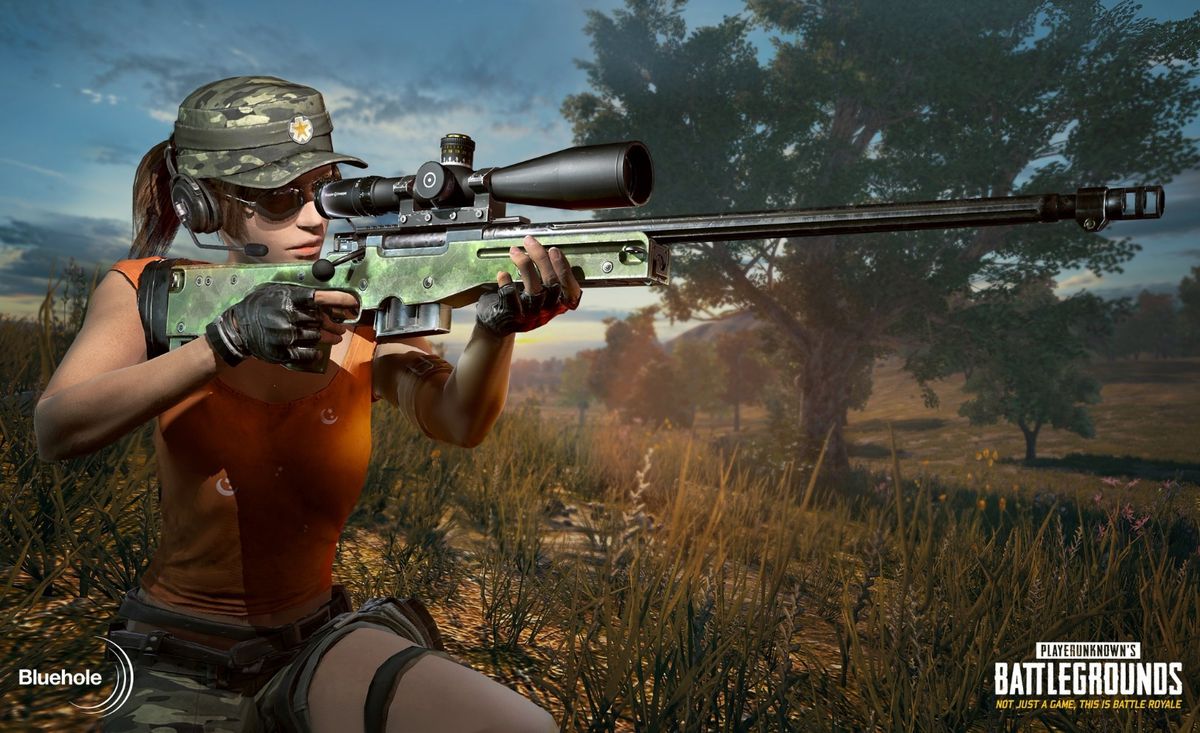PlayerUnknown’s Battlegrounds (PUBG) is one of, if not the, most popular PC games around right now, with an average of 500,000 players online at any given time. Bluehole, the South Korean company behind PUBG, wants to continue growing the game’s popularity by expanding into China, one of the world’s most lucrative gaming markets. However, as Bloomberg‘s Lulu Yilun Chen reports, the Chinese government is set to block the game, citing a clash of values and potential harm to young people.
For those of you who may not know, PUBG is a battle royale game that pits 100 people against each other in a Hunger Games style fight-to-the-finish. The China Audio-Video and Digital Publishing Association issued a statement saying the competition violates Chinese socialist values, and as Chen points out, undermines President Xi Jinping’s recent call for national and political unity. Also cited as a problem is PUBG’s realistic graphics, making the game too graphically violent and giving it the potential to harm young people.
The Association is not speaking without authority either. It consulted the State Administration of Press, Publication, Radio, Film and Television prior to making its statement, so the decision and rationale behind it are essentially coming from the Chinese government. The Administration has been responsible for banning other content deemed unsuitable too, from television shows to video games.
Yet violence is not really the main problem here, since other violent—though admittedly cartoony—games have achieved great popularity, such as Tencent’s Honour of Kings. That title, however, is based around the concept of cooperation, with teams of five hacking their way through the game.
Since the Association’s statement is backed by the government, it doesn’t seem likely at this point that Bluehole has much hope of making it into the Chinese market. It comes as a bit of a blow to the company too, since there has been widespread demand for the game among Chinese consumers.
Update 11/9
Shortly after the original Bloomberg piece’s publication, Chinese market analyst group Niko Partners posted a blog speculating about the intent behind the state media department’s reservations. Rather than constituting an outright ban, Daniel Ahmad says the statement more than likely refers to the desire for the offending features to be changed before it could be officially released in the Chinese market.
Unofficially, there are already plenty of players downloading PUBG via Steam, which works in a peculiar halfway zone. It’s not entirely legal–since titles it provides aren’t always licensed–but if the Chinese government clamped down on unlicensed distribution, it would mean closing the entire platform down. Ahmed suspects the goal is to encourage Bluehole to partner with a Chinese company to make the necessary changes.
PUBG and Politics
Ahmed’s suspicions seem to be coming true as well. Park Hyong-ki of The Korean Times published a recent report about Tencent’s continued interest in acquiring a substantial part of Bluehole. Not only is Tencent one of the only companies capable of affording a buyout; Bluehole founder Chang Byung-gyu has expressed interest in selling his shares of the company, which amount to about 1/5th of the total shares.
Chang has a role in the Korean Fourth Industrial Committee, so he cannot sell his shares publicly without facing accusations of using his position to influence sales. Yet he more than likely wants to sell, since his past trends show a pattern of building up companies then selling and starting another. Selling to Tencent would create the necessary partnership to have PUBG published in China and free Chang to pursue other ventures. Tencent, having recently bought shares in other major companies like Blizzard and Epic Games, would benefit greatly as well.
But political considerations are also playing a role in the situation, as The Korean Times notes. Relations between China and South Korea have been strained of late, on account of the controversial THAAD system’s deployment in South Korea. Tencent’s purchase of Bluehole would lay the foundation for Chinese businesses to invest in South Korean ones, and the other way ’round, thus creating closer commercial and political ties between the two nations.
Chang nor Tencent have commented on the situation apart from confirming that Tencent will be Bluehole’s partner.
We’ll keep you updated as any new developments arise, but for now, let us know your thoughts on the matter down in the comments!







Published: Oct 31, 2017 10:36 am